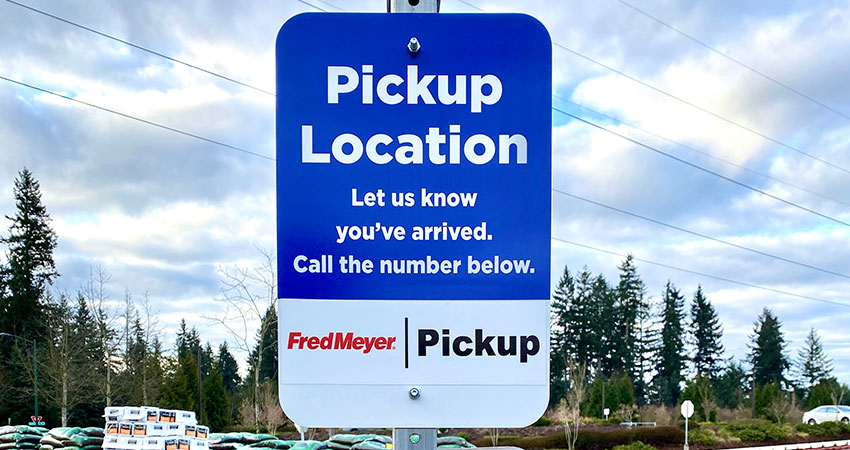A handful of grocery retailers have flipped some locations into so-called dark stores to handle the crush of online orders, but it remains to be seen how widespread the practice will become or how much the trend will stick after the coronavirus threat dies down.
Reductions in store hours to meet local mandates, limits on customer capacity as well as the lack of available pickup slots for online orders are some of the reasons why grocers have been turning retail sites into dark stores dedicated to e-grocery order fulfillment.
Companies that have taken this step include Amazon with its Whole Foods stores, Kroger at a store in its hometown of Cincinnati, Stop & Shop and Giant Eagle at several stores, including one in Pittsburgh. Stop & Shop had an existing dark store in Whitman, MA.
In addition to some Whole Foods locations, Amazon has also temporarily converted its much-touted new grocery store in Woodland Hills, CA outside of Los Angeles into a dark store; it had been scheduled to open in February. “We will adjust store hours for select Whole Foods Market locations to focus exclusively on fulfilling online grocery orders during this time,” said Stephanie Landry, Amazon’s vice president of grocery delivery in a blog post.
Neil Stern, an analyst following grocery for consultancy McMillonDoolittle, said retailers who had been basing their e-grocery roadmaps on 30% annual growth, representing about 6% of U.S. sales, have suddenly been hit with massive demand that has swamped resources. This has caused them to make a number of immediate shifts in strategy like opening dark stores.
It’s also accelerating grocery retailers’ plans to implement automation and other technology investments as the sudden rise in e-grocery demand is not likely to subside completely even when COVID-19 fears die down – assuming that they do.
“If they have the ability to plan for that, not just reacting to a crisis, they’ll start saying, I need more efficient ways to (handle online orders) by adding automation technology for picking,” Stern said. “They’ll start looking at their fleet of stores and think about converting some underperforming locations to dark stores, where they can handle picking really fast and become more efficient.”
While some labor groups and health experts are starting to broach the idea of shutting down grocery stores to customers entirely to protect both workers and consumers, Stern said the current system couldn’t support a complete flip to dark stores and curbside.
“Even with demand for ecommerce doubling, as it easily has during this period, the grocery industry isn’t equipped to handle it with the current supply chain,” he said. “There’s just not enough infrastructure for it. People can’t find slots for delivery or pickup as it is now, it’s just not efficient enough. They may have to shut down some stores in cases where they can’t get enough workers or there are other restrictions.”

